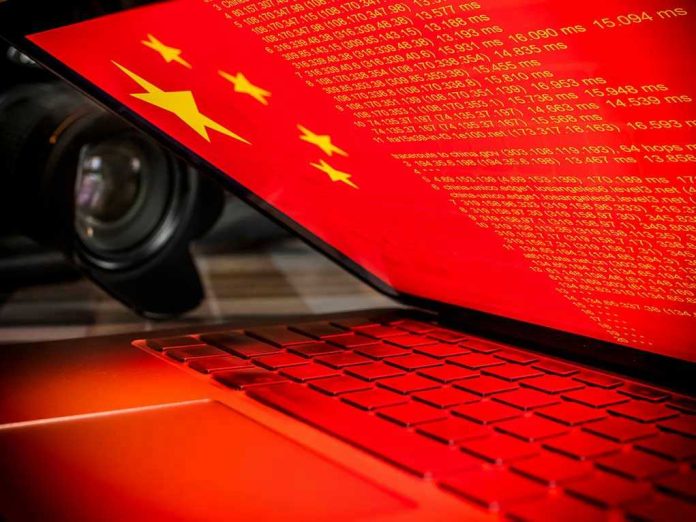
Federal agencies have cut ties with China-founded Foxit PDF software, citing security threats that put national interests and data protection squarely at risk.
Story Snapshot
- Multiple U.S. agencies terminated contracts with Foxit, a Chinese-founded PDF software provider, over national security concerns.
- Foxit’s deep integration into government IT raised alarms about supply chain vulnerabilities and foreign influence.
- Recent law and policy changes reflect a broader push to decouple critical infrastructure from Chinese technology.
- Agencies now seek U.S.-based alternatives, intensifying scrutiny of foreign vendors across government systems.
Federal Agencies Sever Ties with Foxit: The Security Rationale
The State Department, Missile Defense Agency, and other major federal entities confirmed the removal of Foxit PDF software from their systems. Foxit, which originated in China and remains publicly traded on the Shanghai stock exchange, had become deeply embedded in U.S. government operations. The decision to terminate contracts followed increased scrutiny over Foxit’s Chinese ownership and related security risks, especially after media inquiries led the company to erase references to its U.S. government clients from its website. These rapid, coordinated actions reflect mounting concerns about the exposure of sensitive data to adversarial actors through foreign software supply chains.
Federal agencies acted in response to vulnerabilities like CVE-2025-32451, which exposed Foxit’s software to potential exploitation. Issues such as memory corruption and technical flaws heightened the urgency for government IT teams to replace the affected software with more secure, U.S.-controlled solutions. The push to remove Foxit aligns with longstanding precedents, including bans on Huawei, ZTE, and Russian-origin Kaspersky software. Each removal signals a broader trend: the U.S. is prioritizing supply chain integrity and cybersecurity by distancing itself from technologies tied to foreign adversaries, especially those with direct links to Chinese oversight and ownership.
Policy Shifts and Legislative Mandates Drive Decoupling
Legislation such as Section 889 and Section 1260H of the National Defense Authorization Act (NDAA) has played a decisive role in restricting federal contracts with firms deemed security risks due to foreign ties. These measures mandate rigorous vetting and outright bans on certain Chinese technology providers, driving agencies to ensure compliance and safeguard national interests. The Trump administration’s renewed focus on securing critical infrastructure intensified the urgency, as policymakers emphasized the need to prevent espionage, data exfiltration, and undue foreign influence. This shift not only impacts Foxit but sets a precedent for ongoing contract reviews and potential exclusions of other foreign software vendors from government systems.
Agency CIOs, procurement officers, and Congressional committees on homeland security and defense have led the charge in enforcing these legislative mandates. Their decisions are shaped by both technical risk assessments and broader concerns about protecting the U.S. against external threats. The coordinated termination of Foxit contracts highlights the power dynamics at play—government agencies serve as both customers and regulators, wielding significant authority to shape the technology landscape within federal operations.
Industry Impact and Expert Perspectives on Supply Chain Security
The fallout from Foxit’s removal will disrupt workflows in the short term, as agencies transition to alternative PDF providers. However, the long-term impact is more profound: U.S. government IT infrastructure is steadily decoupling from Chinese technology, creating new opportunities for domestic vendors while raising the bar for compliance and security standards. Experts warn that software linked to adversarial nations poses persistent risks, including data theft and espionage. While some analysts caution that blanket bans may stifle competition and innovation, most agree that national security concerns must take priority—especially for software handling sensitive government data.
US agencies distance themselves from Chinese-founded PDF software https://t.co/qeyyAbOaRV
— Fox News Politics (@foxnewspolitics) August 28, 2025
Foxit’s U.S. business faces substantial economic repercussions as contracts are lost and its reputation among government clients suffers. The broader industry will see increased demand for vetted, U.S.-controlled solutions, challenging foreign vendors to meet stricter compliance requirements. The precedent set by Foxit’s removal will likely encourage further reviews of technology supply chains, reinforcing the Trump administration’s commitment to defending U.S. sovereignty, constitutional protections, and the integrity of government operations against foreign overreach.
Sources:
U.S. agencies distance themselves from Chinese-founded PDF software
Defense Contractors: Restrictions When Contracting With Chinese Companies
CVE-2025-32451: Foxit Reader Memory Corruption




